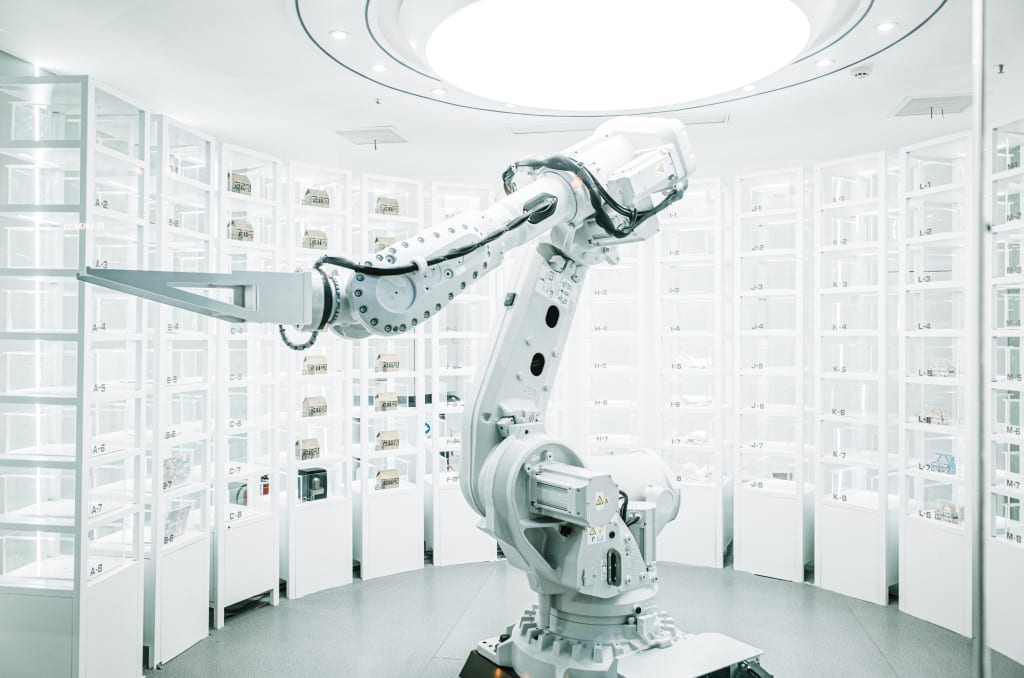Unleashing the Power of Artificial Intelligence and Automation: Exploring Impact, Ethics, and the Prospects of a Transformed Future
This article delves into the impact of artificial intelligence and automation across industries, addressing ethical considerations, and exploring the potential benefits and risks, offering insights into a transformed future driven by these technologies.

Introduction:
Artificial Intelligence (AI) and automation are revolutionizing industries and reshaping the world we live in. This article delves into the profound impact of AI across various sectors, the ethical considerations it raises, and the potential benefits and risks associated with this transformative technology. This article explores the profound impact of artificial intelligence and automation across industries, raises ethical considerations, and discusses the potential benefits and risks associated with these transformative technologies in shaping our future.
Impact of AI Across Industries:
AI has permeated multiple sectors, enhancing productivity, efficiency, and decision-making. In healthcare, AI-driven diagnostics and predictive analytics enable more accurate diagnoses and personalized treatments. In finance, AI algorithms streamline risk assessment, fraud detection, and trading strategies. Manufacturing industries benefit from robotics and automation, optimizing production processes and improving quality control. Additionally, AI-powered virtual assistants and chatbots enhance customer service experiences across industries.
Ethical Considerations:
As AI continues to advance, ethical considerations become paramount. Ensuring fairness, transparency, and accountability in AI systems is crucial. Bias in algorithms, data privacy concerns, and the potential for job displacement are critical issues to address. Ethical guidelines and regulations are necessary to guide the responsible development and deployment of AI technologies.
Benefits of AI and Automation:
AI and automation offer significant benefits. Increased productivity and efficiency lead to cost savings and improved customer experiences. AI-driven data analysis helps uncover patterns, insights, and opportunities that were previously inaccessible. Automation can eliminate repetitive and mundane tasks, freeing up human resources for more creative and strategic endeavors. Furthermore, AI has the potential to tackle complex societal challenges, such as climate change and healthcare access, through data-driven solutions.
Risks and Challenges:
While the potential benefits of AI are immense, there are inherent risks and challenges. Job displacement due to automation is a concern, requiring proactive measures to reskill and upskill the workforce. The potential for AI systems to reinforce existing biases and discrimination demands careful oversight and algorithmic transparency. Additionally, the ethical implications of AI in areas like autonomous vehicles and military applications necessitate robust guidelines and regulations to ensure safety and human well-being.
Collaboration and Regulation:
Addressing the challenges and maximizing the benefits of AI requires collaboration between governments, industry leaders, and researchers. Establishing ethical frameworks and regulatory standards is crucial. International cooperation is necessary to develop guidelines that transcend borders and ensure ethical and responsible AI development.
Building Trust and Explainability:
To gain public trust, AI systems must be transparent and explainable. Black-box algorithms that lack transparency hinder users' ability to understand and trust the decisions made by AI systems. Techniques like explainable AI and interpretability methods can provide insights into AI decision-making processes, enabling users to understand and validate outcomes.
Education and Workforce Adaptation:
As AI continues to evolve, it is imperative to prioritize education and workforce adaptation. Preparing the workforce for the future requires a focus on STEM education, promoting digital literacy, and fostering lifelong learning opportunities. Upskilling and reskilling programs can equip individuals with the necessary skills to thrive in an AI-driven world.
This article delves into the impact of artificial intelligence and automation across industries, addressing ethical considerations, and exploring the potential benefits and risks, offering insights into a transformed future driven by these technologies.
Conclusion:
Artificial intelligence and automation are reshaping industries, driving innovation, and transforming society. Understanding the impact of AI across various sectors, addressing ethical considerations, and maximizing its benefits while mitigating risks are crucial. By fostering collaboration, establishing ethical frameworks, promoting transparency, and investing in education, we can harness the potential of AI to create a future where humans and intelligent machines coexist harmoniously, leading to improved productivity, societal well-being, and a more sustainable world.





Comments
There are no comments for this story
Be the first to respond and start the conversation.